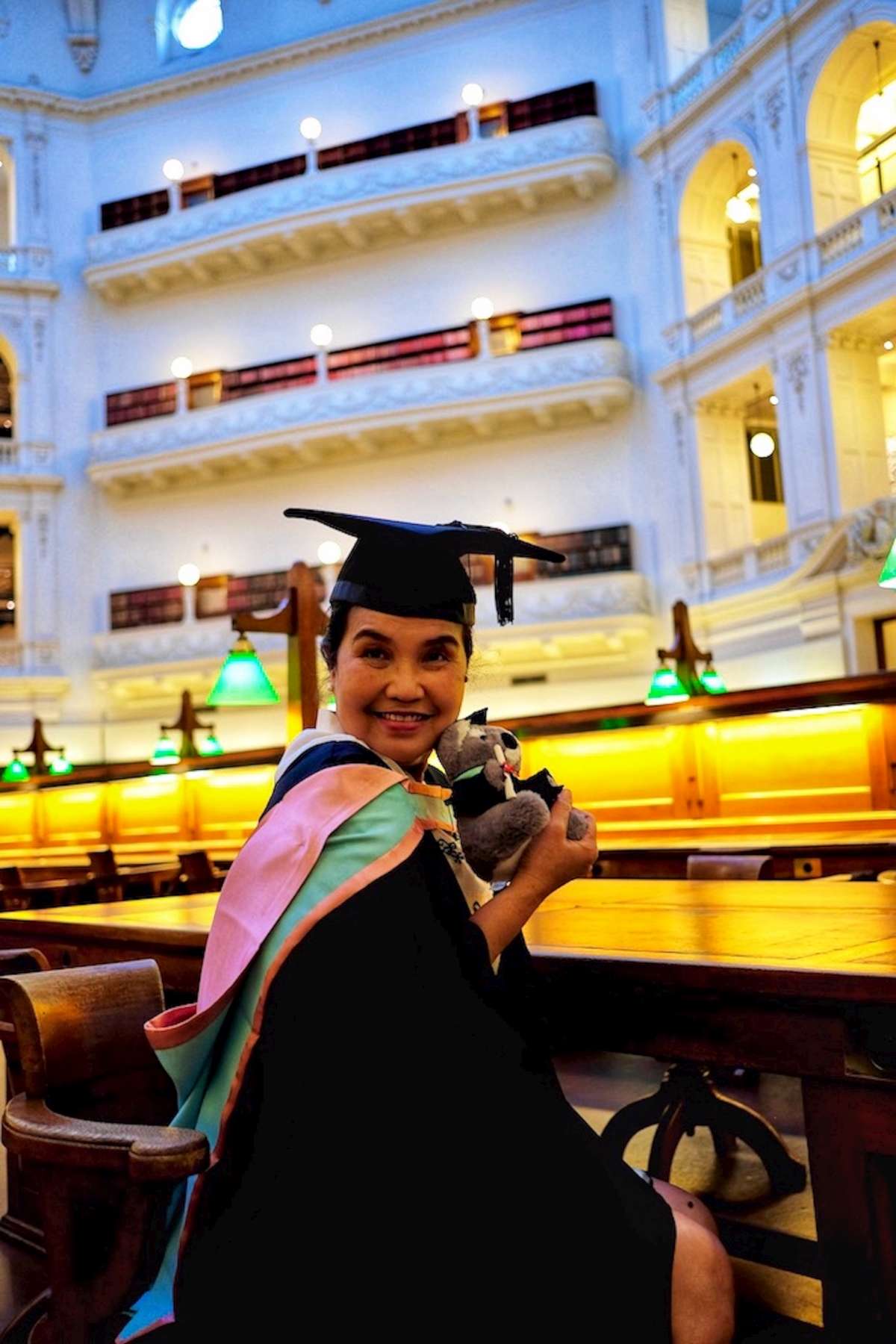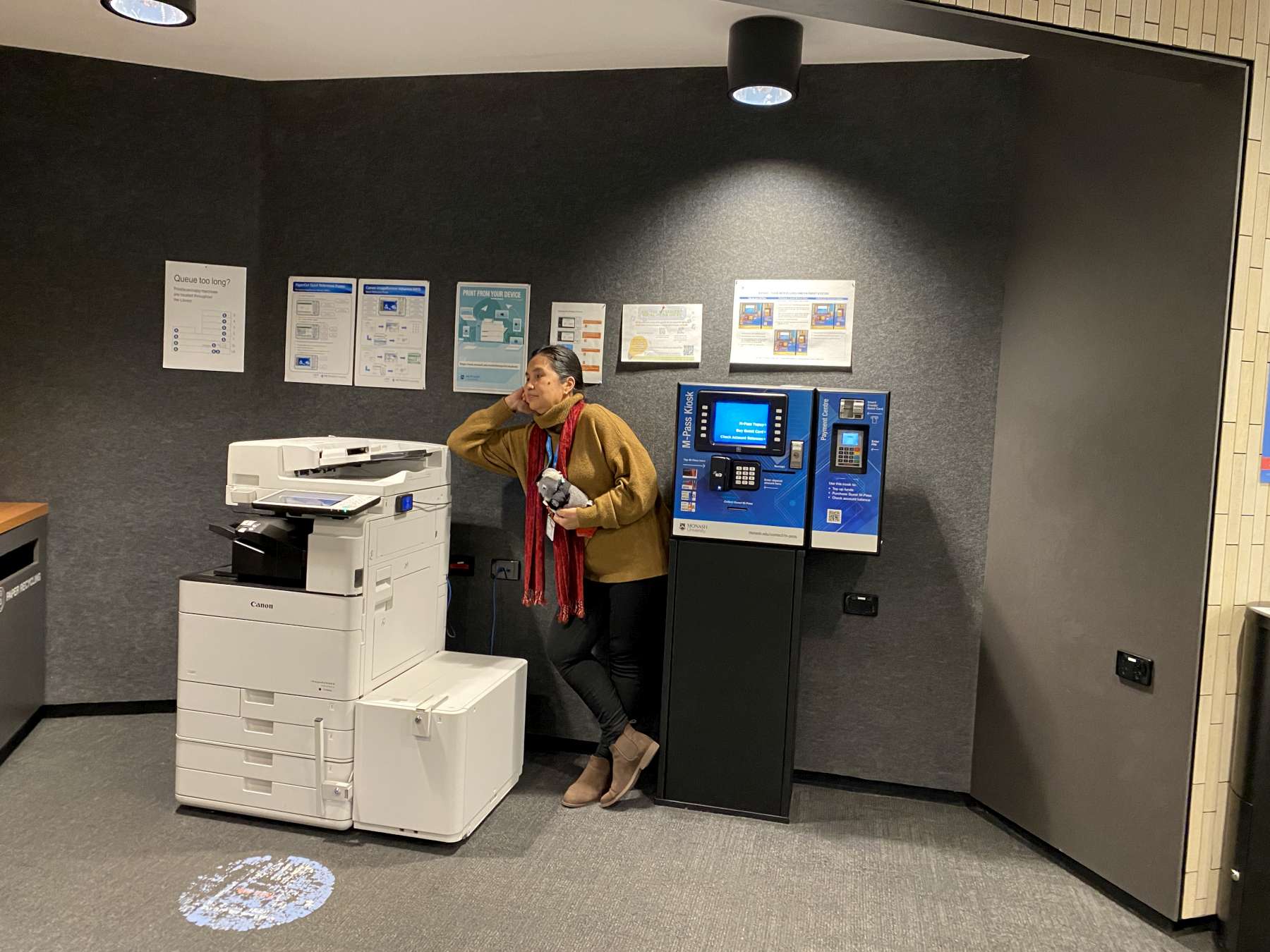My Australia Awards Story: Australia Awards Scholar Completes Postgraduate Program with High Distinction amidst Pandemic

Through Australia Awards, I was able to show that as Filipino scholars, we can excel and stand shoulder to shoulder with other international students. To carry the Filipino pride in all these was truly an honour.
What's your most memorable experience/s living and studying in Australia?
The usual responses would be seeing Tasmanian devils, playing in the snow, or doing extreme sports. In my case, as part of batch who were in Australia during the pandemic, my story is a bit different for obvious reasons. But I was still able to do things and see places in Australia despite the pandemic because as soon as travels were allowed, my batch of scholars went carpe diem, seizing opportunities to travel to Queensland, Sydney, Tasmania, or regional Melbourne, soaking in the amazing sights, sounds and gustatory delights (special mention: cheeses). I think of Australia as a feast to the senses! Melbourne alone is a creative paradise and such a breathable space that I immensely enjoyed every single day.
I would be remiss if I don’t mention the festive atmosphere during dinners hosted by the Pinoy community as among my fondest memories of Australia. They made us not miss home so much. To this day, I remember the warmth of the Titos and Titas in Australia. My involvement as the Vice-President for External Affairs of the Filipino-Australian Student Council of Victoria also gave me the opportunity to provide help to Filipino students in difficult situations during the pandemic.
I also initiated activities among fellow Australia Awards scholars from different countries. Among these are the online send-off for Australia Awards graduates in 2020 and food trips, where scholars from a country host dinner featuring their cuisine. These led to greater solidarity among us, being in another land at a most difficult time. And this is what I think makes the story of our batch (Batch Sinag) hugely different – the pandemic made us appreciate and nourish human connections even more, finding rays (Sinag) of care and optimism from each other.
What makes Australia a good place for postgraduate education?
My entire one and a half years of postgraduate studies were done amidst a raging pandemic. When rumors of possible lockdowns started buzzing, I and my housemates, also Australia Awards Scholars from the Philippines, wondered how long it would take for universities in Australia to manage the transition to the online platform and still maintain their high standards of excellence. Well, it was fast, and the transition was smooth and seamless!
At Monash University where I took my master’s, online access to course materials, library, student services, mental health counselling, off-class catch-up sessions with faculty and information on COVID-19 were available as soon as the announcement of lockdowns was made. Even with the pandemic, students felt well-supported in their endeavour to meet the academic rigors of the university, which was a member of the elite Group of Eight, composed of leading research-intensive universities in Australia. It was amazing to witness how a stable university system works and how its risk mitigation plans efficiently deal with sudden and consequential disruptions. All these fostered a safe and stable environment for students, particularly those like me who were living far away from home. Thus, a postgraduate student gets to learn from the best even in times of crisis.
In addition, the volunteering opportunities at the university should not be missed by any student. They were so worth my time. Not only did my volunteering with the Monash Graduate Association help me get to know students from different countries; but I also had fun running events for them and learning handy tips about life in Australia. I also volunteered as the Education Officer of the Monash International Development Practice Association (MIDPA), organizing online learning events on international development practice with seasoned development practitioners.
All huge plus points for Australia as an excellent place for postgraduate education.
As a Filipino scholar, what are you most proud of?
Through Australia Awards, I was able to show that as a Filipino scholar, we can excel and stand shoulder-to-shoulder with other international students. It was not an easy feat, given the amount of literature that we had to read, and the level of analytical thinking and writing expected of postgraduate students. I am also proud of the recognition by my colleagues at MIDPA of my leadership potential, having been elected as its president in 2021. This is also the same association that produced a student journal featuring articles (mine included) from my Gender and Development Class. Seeing my article in print was such a proud moment.
In addition, our Student Contact Officer at Monash noticed what I was doing with my batch of scholars and recommended that I speak on behalf of AAS in networking events among returning Australian volunteers and in an AAS event in Melbourne. To carry the Filipino pride in all these was truly an honor.
Give one word to describe your Australia Awards journey.
Liberating. Given my rather advanced age, it was neat to achieve my academic marks. But equally remarkable was trying out activities such as biking on busy urban streets, aerial yoga, or silks, that I would not have thought of doing back home. These may be simple things, but they gave me the confidence to further break my glass ceilings and do things that I find joy doing, full stop.
Now that you're back, how are you making a difference in your field / community?
I returned to independent consulting in the social development space although it took me a while to accept work because of my father’s passing and having to be my mother’s primary caregiver. However, I knew I had to continue engaging in my field in whatever way, thus I volunteered to help with the Australia Alumni Network Summit and other events, to remain connected with the network and continue my learning journey. I also put my hand up to be the Convenor of Social Development Community of Practice of the Australia Alumni Communities Philippines (AACPh) where I was able to help the group aid families affected by Tropical Storm Odette in Surigao City. This initiative prospered into a potential partnership with a local government unit (LGU) for the implementation of my Re-Entry Action Plan. With a fellow scholar, we will help the LGU’s disaster risk management officers build and manage their database for evidence-based decision-making in their recovery efforts. Furthermore, I
will be leading a team in piloting post-disaster recovery planning in a village using regeneration as the framework.
If there’s one thing that my studies during a pandemic taught me, it’s to choose to be part of transformation even in small orbits of influence and contribute to a bigger ecosystem of change that challenges dominant development models sustaining poverty and inequality.






